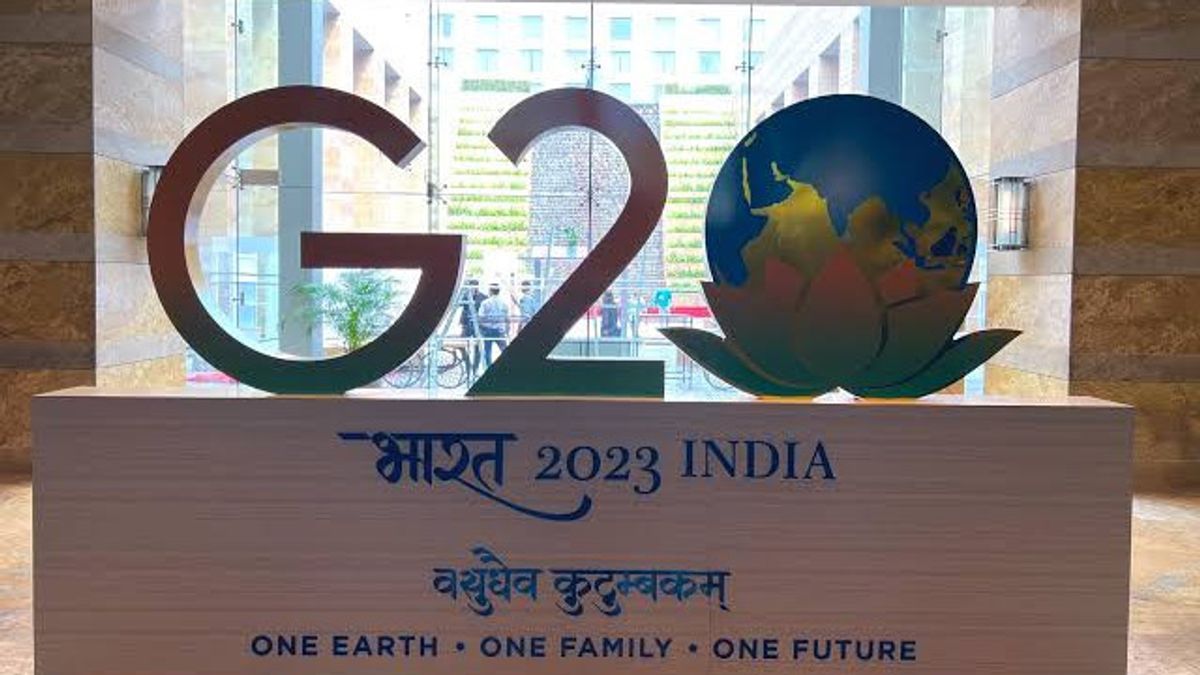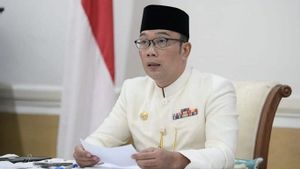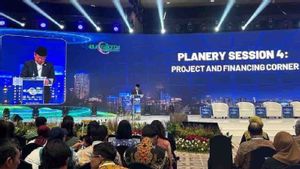JAKARTA - The meeting of the Ministers of Finance (Menkeu) and the Governor of the 3rd Central Bank of the G20 (FMCBG) under the Presidency of India was completed on July 17-18. The Indonesian delegation itself was attended by Minister of Finance Sri Mulyani and BI Governor Perry Warjiyo.
The meeting discussed a number of issues that were of concern and needed to get common attention, such as global economy and health, sustainable finance and infrastructure. Then, international financial architecture, international taxation, financial sector and financial inclusion.
Minister of Finance Sri Mulyani said, specifically for global health issues, which have been a priority agenda since Indonesia's G20 Presidency last year. She encouraged the G20 countries to continue to maintain collaboration between the minister of Finance and the minister of health for pandemic preparedness and response.
"We welcome the completion of a call for proposal by the Pandemic Fund (pandemic Fund) and look forward to the first round of funding that will enter in stages within a few months. However, the mobilization of the Pandemic Fund currently has only reached 1.7 billion US dollars, far from the need for funds of 10.5 billion US dollars," he said in a press statement Wednesday, July 19.
The Minister of Finance explained that currently the World Health Organization is developing a framework for volatility and economic and health risks (Framework of Economic Vulnerability and Risks/FEVR) in consultation with the World Bank, European Investment Bank, and the International Monetary Fund.
Dalam agenda keuangan berkelanjutan dan infrastruktur, Menkeu menyampaikan ada berbagai faktor penting dalam mencapai tujuan bersama dalam pencapaian tujuan pembangunan berkelanjutan dan agenda iklim bersama.
The factors are transitional finance, mixed financing schemes (blended finance), comprehensive policies from both fiscal, real, macro and microprudential sectors, and classification of green transitional activities.
"To achieve this goal, global collaboration and international efforts, including international funding and technical support, are important to help reduce the costs required by each country to stay on track in achieving climate targets and sustainable development together," he said.
SEE ALSO:
Regarding infrastructure, Indonesia supports the G20 principles in financing future cities as a voluntary and non-binding reference in accelerating sustainable infrastructure development to achieve inclusive, resilient, and sustainable cities.
"On the agenda of international financial architecture, Indonesia encourages the implementation of the Capital Adequacy Framework roadmap from the Multilateral Development Bank and encourages them to have concrete targets to increase their loan capacity," he said.
The Minister of Finance added that Indonesia wants the G20 to take advantage of opportunities to strengthen Multilateral Development Banks and private investment in Global Public Goods (GPG) financing.
The next issue discussed in the meeting was international taxation. It was stated that the purpose of the Two Pillar Solution was to increase justice, ease, and certainty. In particular, Pilar Satu will provide a fairer allocation of profits to improve equality.
Meanwhile, Pilar Dua is aimed at overcoming the remaining Base Erosion and Profit Shifting (BEPS) problems. The provision of capacity building is very important for members of the Inclusive Framework.
"The increase in capacity in Pilar Dua must be prioritized because Pilar Dua will soon be implemented," he stressed.
During this visit, the Minister of Finance established communication with various strategic parties, such as US Finance Minister Janet Yellen, Indian Finance Minister Nirmala Sitharaman, Australian Finance Minister Jim Chalmers, OECD Secretary General Mathias Cormann, IMF IMF Executive Director Kristamina Georgiva, and World Bank President Ajay Banga.
"The bilateral meeting with various countries mainly discusses macroeconomic and fiscal conditions, asking for support for Indonesia's membership in the FATF, as well as strengthening cooperation with Indonesia, among others, related to energy transitions, trade and industrial investments, as well as financial services," he explained.
The state treasurer explained that the meeting with the Minister of Finance of India discussed the realization of economic and financial dialogue, especially to strengthen trade and investment and update the plan to implement the Local Currency Transaction between the two countries.
Then, the meeting with the Secretary General of OECD discussed Indonesia's future membership plans. At a meeting with the President of the World Bank, the Minister of Finance specifically asked the World Bank to support the financing of Indonesia's Project ETM Pilots as an example of the implementation of Multilateral Development Bank financing for energy transitions and global public goods.
"The bilateral partners also expressed appreciation for the results of Indonesia's G20 Presidency last year, expecting Indonesia's support for several follow-up plans for the results of this achievement, and continuing to oversee the G20 process in the future," closed the Minister of Finance Sri Mulyani.
The English, Chinese, Japanese, Arabic, and French versions are automatically generated by the AI. So there may still be inaccuracies in translating, please always see Indonesian as our main language. (system supported by DigitalSiber.id)

















